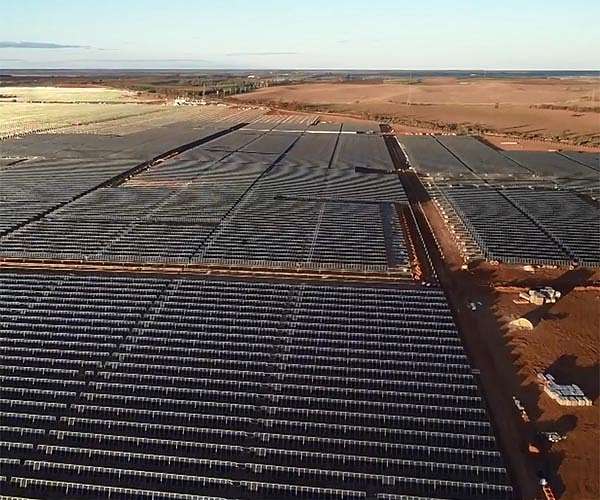Australia approves world’s ‘largest’ solar hub
Australia on Wednesday approved plans for a major solar and battery farm that would export energy to Singapore, a project dubbed the “world’s largest solar area.”
Authorities have announced environmental approvals for the $24 billion SunCable project in Australia’s remote north, which is expected to power three million homes.
The project, which includes a series of panels, batteries and ultimately a cable connecting Australia to Singapore, is backed by technology billionaire and green activist Mike Cannon-Brookes.
“It will be the largest solar area in the world – and heralds Australia as the world leader in green energy,” said Environment Minister Tanya Plibersek.
It is hoped that energy production will begin in 2030.
The 12,000 hectare project will provide four gigawatts of energy per hour for domestic use. Two additional gigawatts sent to Singapore via submarine cable will meet about 15 percent of the city-state’s needs.
Batteries could store about 40 gigawatts
SunCable Australia managing director Cameron Garnsworthy said the approval was “a milestone in the project’s journey”.
Despite Wednesday’s green light, numerous approval processes remain in place, including collaboration with Singapore’s Energy Market Authority, the Indonesian government and Australia’s indigenous communities.
“SunCable will now focus its efforts on the next phase of planning to advance the project towards a final investment decision by 2027,” Cannon-Brookes said.
– ‘Clean energy power station’ –
Australia is currently one of the world’s largest exporters of coal and gas, but is also ravaged by the effects of climate change – from intense heat to floods and bushfires.
Although Australians are among the most enthusiastic users of household solar panels in the world, a range of governments have been slow to fully embrace renewable energy sources.
In 2022, renewables made up 32 percent of Australia’s total electricity generation – compared to coal, which contributed 47 percent, according to the latest government data.
Climate Council CEO Amanda McKenzie said the new solar hub was a bold step towards making Australia a “clean energy powerhouse” and such projects were essential to “delivering affordable energy and reducing climate pollution” .
“With the prospect of coal power plant closures on the horizon, Australia must accelerate the rollout of solar and storage at every level: rooftops, large-scale projects and everything in between,” she said.
The project would also be an important step for Cannon-Brookes’, which has expanded its portfolio from software company Atlassian – which he co-founded – into the renewable energy sector, including being the newest shareholder of AGL Energy.


